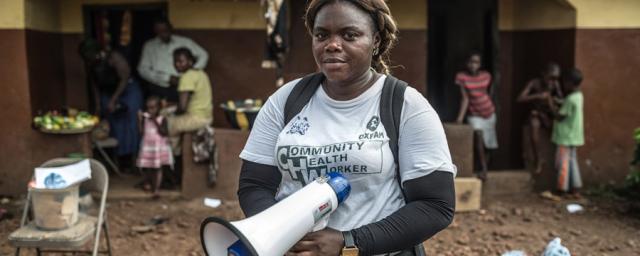
This page highlights the policies and processes Oxfam has in place to protect the people we work with from any form of abuse, exploitation and harm.
What does safeguarding mean for Oxfam?
At Oxfam, we are committed to zero tolerance of sexual harassment, exploitation and abuse in our organization. This means that we will do everything in our power to prevent these from happening, and rigorously address it each and every time it happens. One of the most important pillars of safeguarding is our Code of Conduct, which provides a framework within which all Oxfam employees, regardless of location, undertake to carry out their duties and to regulate their conduct.

How can Oxfam staff, volunteers, partners and people we work with safely report cases of misconduct?
Anyone (including Oxfam’s partners and people we work with) can raise a concern or make a complaint to Oxfam about something they have experienced or witnessed without fear of retribution.
You can do this through our confidential whistleblowing lines:
- By email: speakup@oxfam.org.uk
- Online: Speak Up webform
Alternatively, you can reach out to your nearest Oxfam
How does the incident reporting process work?
We commit to engage all relevant parties and to act swiftly to conclude all cases. However, the timeline may vary depending on the nature and complexity of the complaint.

How do we work to prevent abuse and misconduct from happening in the first place?
In 2017, Oxfam International created a global Safeguarding Task Force, led by Winnie Byanyima, Oxfam International Executive Director. The Safeguarding Task Force is working in three main areas:
- Prevention: This includes training, communications and information to prevent risk of harm and abuse, a revision of staff screening processes, risk assessment and an evaluation of staff capacity to perform the work.
- Support and care: Entails providing resources to support and care for those who have experienced sexual harassment, abuse and/or violence. It also includes ensuring that staff have access to specialized training and real-life experience.
- Response: This includes strengthening and harmonizing current policies and procedures, and ensuring that these are clear and accessible to all. We are aiming to cultivate an environment where information is shared and people are held accountable.
Oxfam's safeguarding and related policies
Oxfam is introducing new policies across its confederation - including policies on the Prevention of Sexual Exploitation and Abuse, Child Safeguarding and Survivor Support. Check out the list of already approved safeguarding and related policies:
One Oxfam Policy on Protection from Sexual Exploitation, Abuse and Harassment (PSEAH)
One Oxfam Child Safeguarding Policy
One Oxfam Youth Safeguarding Policy
Security Policy and Local Security Guidelines
Sexual Diversity and Gender Identity Rights Policy
Continue to mature and strengthen safeguarding and culture at Oxfam
To reflect our growing maturity in our practice, the respond to changes in stakeholder requirements, to meet our organizational commitments, and to align our work both towards international best practice and our values, we have developed a One Oxfam Safeguarding Strategy for 2024-2028.
Our Safeguarding vision is for our work to continue to mature and strengthen over the next years creating safe environments for everyone. We will cultivate and uphold an organizational culture that prioritizes safeguarding and harmonizes our practices across the Confederation where Safeguarding is everyone’s responsibility. Our efforts will be directed towards building safeguarding capacity and expertise together with our diverse partners, and by responding to local needs and feedback to ensure our safeguarding practices remain effective.